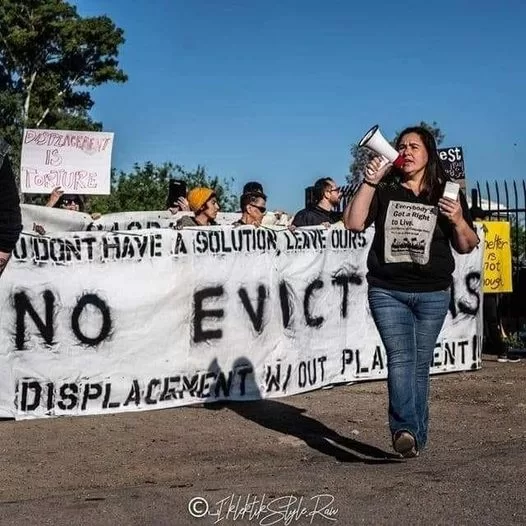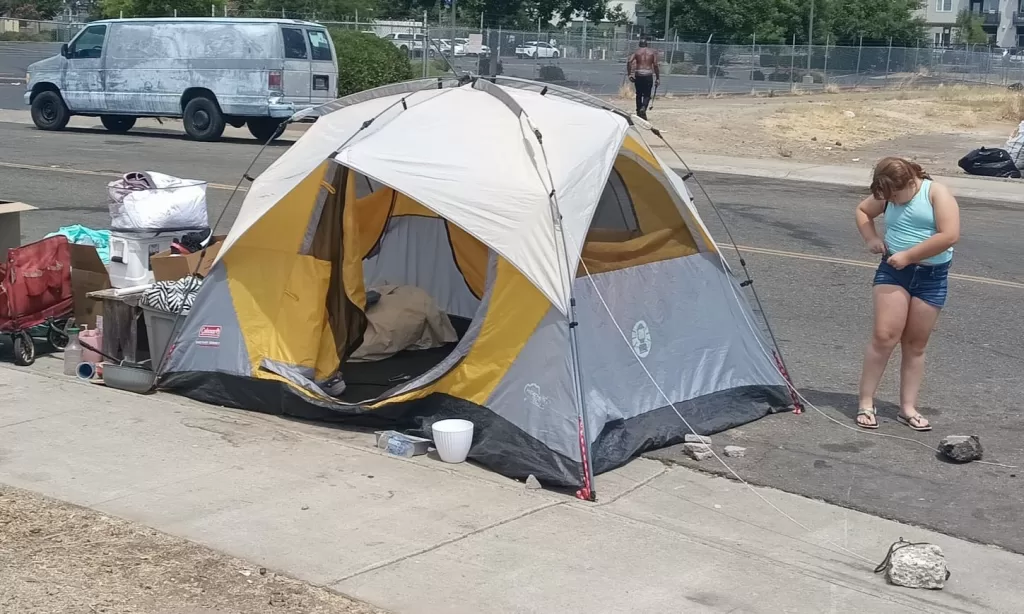
SACRAMENTO, CA — Sacramento is a place that has been a multi-generational home to my family. A place where at a young age I became part of the foster group home system and eventually unhoused. A place where I have raised my children got my Criminal Justice degrees, worked, co-owned a business, and became a social justice fighter for not only the unhoused but our community as a whole. I have been a part of Sacramento for the last 40+ years. Sacramento has been a source of stability and security for my family. The sense of security and comfort that comes from living in the same place for so long is invaluable. We have built a strong community here, with lifelong friends and allies to turn to in times of need. Sacramento has become a part of our identity, and I cannot imagine living anywhere else. We have been able to create deep roots and strong relationships here, and it has been a place for us to gather and build memories. It has also provided us with plenty of opportunities to grow and thrive.
In the same breath, however, we have seen our community as it has crumbled under the weight of policies and economic failures which have led to mass homelessness and have caused the most damage to poverty-stricken areas. Inequity and poverty have also hindered people’s ability to flourish. People living in poverty tend to lack access to educational and economic opportunities, which can prevent them from reaching their full potential. In addition, people who are discriminated against based on their race, gender, housing status or other factors can also be prevented from achieving success.

The impact of homelessness and homeless policy are sounding broad alarms across the nation, with criminalization but no real housing or wrap-around solutions. This has resulted in an increase in criminalization laws, such as loitering, panhandling, infrastructure bans, sidewalk bans, sit lie bans, anti-camping, cooking bans, and sleeping in public, that target people who have no other choice but to live on the streets. These laws not only make it harder for homeless individuals to find housing, but they also further marginalize and criminalize people who are already struggling, and often bars them from housing application processes.
While fingers are being pointed, politicians use these tactics to further line the homeless industrial complex. This has allowed politicians to use the homeless population as a scapegoat for systemic issues caused by the economics that has been allowed to fester for decades. This has allowed them to avoid taking responsibility for the larger issues that are causing homelessness in the first place. These tactics create a false narrative of the homeless population, painting them as criminals or people who refuse to help themselves, instead of recognizing the systemic issues that lead to the homelessness. Politicians are using the homelessness crisis to distract from the lack of affordable housing options, as well as the systemic racism and inequality that cause homelessness in the first place. They are using the crisis to distract from their failure to provide resources and support for those affected by homelessness.
Our society suffers from a lack of real solutions to end homelessness and get people off the streets. This is because the people in power often have a vested interest in the homeless industrial complex, and they are more focused on making money than on the problem. There are also numerous social and economic factors that contribute to homelessness that our society is not doing enough to address.
In Sacramento and its political sphere, we are being assaulted by the unharmonious sounds of compassion fatigue. This is a phenomenon where people become jaded and apathetic to the plight of those in need, due to the sheer volume of people in the city who are facing struggles. Compassion fatigue can lead to a lack of civic engagement and an inability to empathize with those in need.
Due to the unhoused having to survive on the street, people are unable to proficiently access happiness, and at the forefront are those suffering outside. The unhoused and housed are both suffering as a result of this public health crisis. Where is the county public health department? The unhoused have to deal with hardships such as lack of food, medical care, safety, with sweeps and not having locked doors. This can cause them to feel lonely, isolated, and anxious, which can lead to depression, substance use, and other mental health issues that can further impede their ability to access happiness and to fight for their housing and survival.
Both housed and unhoused people are often frustrated and angry when they feel their rights are being taken away, and so they lash out in ways that range from verbal complaints to physical violence. Unhoused frustration is often caused by the difficulty of obtaining basic services and keeping their possessions. The inability to access these services can leave people feeling powerless and desperate, leading to outbursts of anger and frustration. People in poverty are often stuck in a cycle of deprivation, where they have difficulty obtaining the resources necessary to improve their circumstances. This can create feelings of hopelessness and helplessness. Without access to the services and opportunities that housed people take for granted, people in poverty often feel misunderstood and ignored. Housed people also have the right to be upset. A large number of people living and dying on the streets has never been thought of as acceptable by anyone. Homelessness is seen as an indication of economic and social inequality, and a failure of government systems to provide adequate resources for those in need.
This impacts all of us; no one opens a business or purchases a home expecting a tent community to populate it. Holding true accountability and seeking solutions with all voices at the table will take all of us. Tent communities have become a visible sign of the housing crisis and lack of affordability for many people in the US. This crisis has been caused by a variety of factors, including rising rents, stagnant wages, and a lack of available housing. It is important that all stakeholders come together to find solutions that are equitable and take into account the needs of all members of the community.
The homeless and housing crisis cannot be swept away or ignored. We must fight to end them. We must put our money towards solutions that will bring real, lasting change. This could include public housing, job training programs, and other forms of support for those in need.
Do we have the courage to come together and discuss short, mid, and long-term plans to end homelessness where everybody has a chance to be heard and work together to find a solution? The Sacramento Homeless Union’s door is always open. We may not always agree or see eye to eye, but that doesn’t mean solutions cannot be built out of those disagreements and conversations. Let us together build back the Sacramento we all can thrive in.
Crystal Sanchez is President of the Sacramento Homeless Union
Crystal Sanchez is with the Sacramento Homeless Union.

